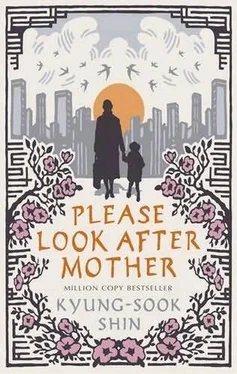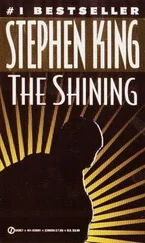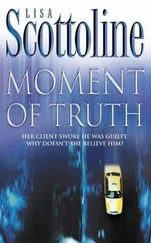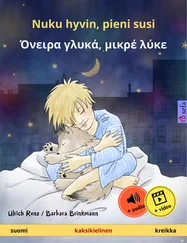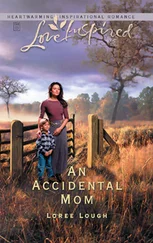It must be that a first meeting is important. I am sure that, deep down, I always thought you owed me, and I showed it by doing whatever I wanted. Just as I found you after you stole my basin on your bicycle, I found you after you moved to Komso without telling me. You didn’t fit in at Komso. You looked out of place and strange standing by the sea. I can still see the expression on your face at the salt fields by the ocean. I was never able to forget that expression, but now that I think of it, maybe your expression was saying, Did she manage to find me even here?
Komso became a place I couldn’t forget because of you. I always came to look for you when something happened that I couldn’t handle by myself, but when I recovered some peace of mind I forgot about you. I thought I forgot about you. When you saw me in Komso, the first thing you said to me was “What’s wrong?” I’m only saying this now; when I went to see you then, it was the first time I’d gone just to see you, not because something had happened to me.
Except for that one time when you ran off to Komso, you always stayed in the same place until I stopped needing you. Thank you for staying in the same place. I might have been able to go on living because of that. I’m sorry for going to see you every time I felt unsettled, but not even letting you hold my hand. Even though I went to you, when it seemed like you were coming to me I acted unkindly. That wasn’t very nice of me. I’m sorry, so sorry. At first it was because I felt awkward, then because I felt we shouldn’t, and later it was because I was old. You were my sin and my happiness. I wanted to seem dignified in your eyes.
Sometimes I told you stories I said I’d read, but I didn’t actually read them. I had asked my daughter, and told you about them. Once, I told you that there was a place called Santiago in a country named Spain. You kept asking, “Where did you say it was?”-finding it hard to memorize that name. I told you that there was a pilgrimage route there that took thirty-three days to walk. Chi-hon wanted to go there-that’s why she told me about that place-but I told you about it as if I wanted to go there. And you said, “If you want to go so badly, let’s go together one of these days.” My heart sank when I heard you say that. I think it was after that day that I stopped coming to you. Truthfully, I don’t know where that place is, and I don’t want to go there.
Do you know what happens to all the things we did together in the past? When I asked my daughter this, although it was you I wanted to ask, my daughter said, “It’s so strange to hear you say something like this, Mom,” and asked, “Wouldn’t they have seeped into the present, not disappeared?” What difficult words! Do you understand what that means? She says that all the things that have happened are actually in the present, that old things are all mixed in with current things, and current things mingle with future things, and future things are combined with old things; it’s just that we can’t feel it. But now I can’t go on.
Do you think that things happening now are linked to things from the past and things in the future, it’s just that we can’t feel them? I don’t know, could that be true? Sometimes when I look at my grandchildren I think that they were dropped down from somewhere out of the blue, and that they have nothing to do with me. Nothing to do with me at all.
Would it have seeped in somewhere, the fact that the bicycle I saw you on when we first met had been stolen, that before you saw me walking down the avenue with the basin of flour on my head, you had planned to sell that stolen bicycle for a strand of seaweed? Or the fact that you ended up not being able to sell the bicycle, so you went to put it back where you found it, but the owner caught you and you got into trouble? Did those events seep into a page of the past and bring us all the way here?
I know that, after I disappeared, you went out and searched for me. I know that you, a man who had never been to Seoul before, came to Seoul Station and went around on the subway, stopping people who looked like me. And that you went by my house many times, hoping to hear some news about me. That you wanted to meet my children and hear what happened. Is that what made you so sick?
Your name is Lee Eun-gyu. When the doctor asks your name again, don’t say “Park So-nyo”; say “Lee Eun-gyu.” I will let go of you now. You were my secret. You were in my life, someone whose presence would never be guessed by anyone who knew me. Even though nobody knew that you were in my life, you were the person who brought a raft at every rapid current and helped me cross that water safely. I was happy that you were there. I came to tell you that I was able to travel through my life because I could come to you when I was anxious, not when I was happy.
I’m going to go now.

The house is frozen solid.
Why did you lock the door? You should have left it open so the neighborhood children could come in and play. There’s no hint of heat anywhere. It’s like a block of ice. Nobody has swept the snow away, even though it’s snowed so much. The yard is a dazzling white. Icicles are hanging everywhere possible. When the children were growing up, they would break off the icicles and have swordfights. I suppose nobody is looking in on this house because I’m not here. It’s been a long time since anyone’s stopped by. Your motorcycle is propped up in the shed. And it’s frozen solid, too. I wish you would stop riding that motorcycle. Who rides a motorcycle at your age? Do you think you’re still young? There goes my habitual nagging once more. Then again, you looked strapping on your motorcycle, not like a man from the country. When you were young and rode into town on the motorcycle, hair pomaded, wearing a leather jacket, everyone turned to look. I think there’s a picture from that time somewhere… in the frame above the door of the master bedroom… Oh, there it is. It was taken when you weren’t yet thirty years old. Your face is filled with passion; that’s not the case now.
I remember the first house we lived in before we rebuilt. I really loved that house. Although now that I’ve said “love,” I don’t think it was only love. We lived forty-odd years in that house that doesn’t exist anymore. I was always in that house. Always. You were there and not there. I didn’t hear from you, as if you would never come back, but then you would return. Maybe that’s why. I can see the old house in front of me, as if it’s illuminated. I remember everything. All the things that happened in that house. The things that happened in the years when the children were born, the way I waited for you and forgot about you and hated you and waited for you again. Now the house is left behind, by itself. There’s nobody here, and only the white snow is guarding the yard.
A house is such a strange thing. Everything else gets more worn when people handle it, and sometimes you can feel a person’s poison if you get too close to him, but that’s not what happens to a house. Even a good house falls apart quickly when nobody stops by. A house is alive only when there are people living in it, brushing against it, staying in it. Look at this-one end of the roof has collapsed because of the snow. In the spring you’ll have to call the person who fixes the roof. There’s a sticker with the name and number of the roof people in the television cabinet in the living room, but I don’t know if you know about it. If you call them they’ll come and take care of it. You can’t leave the house empty like this in the winter. Even if nobody is living here, you have to come by and turn the boiler on once in a while.
Did you go to Seoul? Are you looking for me there?
Читать дальше
